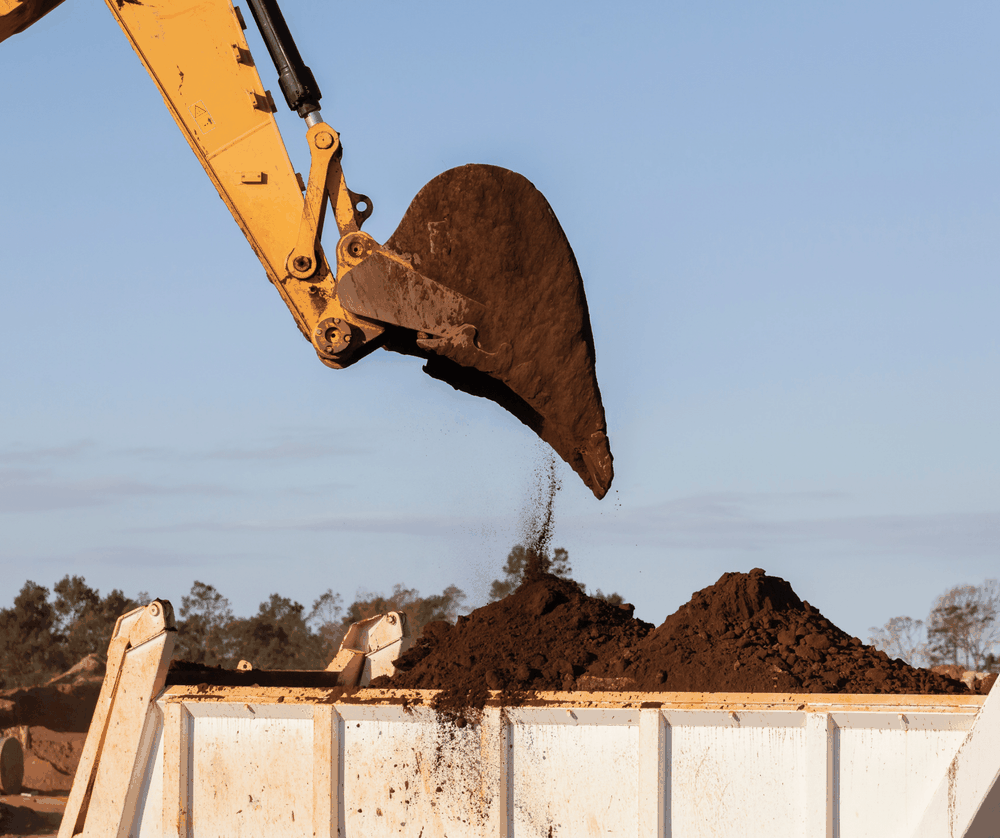Can You Put Soil in a Skip?

If you're tackling a garden project or clearing an outdoor space, one common question is: Can you put soil in a skip?The short answer is yes, but how and where you dispose of it depends on the type of skip and the condition of the soil.
Can You Put Soil in a Skip?
Yes, soil can be placed in a skip, but it must be done correctly to comply with waste regulations and avoid extra charges. There are two main skip options when it comes to soil disposal:
1. Soil-Only Skips
A soil-only skipis designed specifically for disposing of soil (and sometimes other inert waste like hardcore or rubble). However, there are important rules:
The soil must be clean, free from contaminants such as oil, asbestos, chemicals, or other hazardous substances.
You cannot mix household rubbish or green waste in a soil-only skip.
These skips are perfect for landscaping, garden excavation, or turf removal.
Using a soil-only skip helps ensure the waste can be recycled or reused, making it an environmentally responsible option.
2. Mixed Waste Skips (Including Soil)
Alternatively, you can dispose of soil in a mixed waste skip, which allows you to combine soil with:
Household waste
Garden waste
Bricks and rubble
Wood or plastics (in small quantities)
This option is ideal if your project involves more than just soil, for example, a garden renovation that includes soil, old furniture, and general rubbish. Do keep in mind that adding too much heavy material like soil may affect the weight limit of the skip.
Skip Alternatives for Soil Removal
If hiring a skip isn’t suitable for your space, schedule, or volume of soil, there are alternative solutions worth considering:
Grab lorries: Ideal for large amounts of soil, especially if it’s already in a pile. These lorries use a hydraulic arm to load and remove the waste quickly. They're often cheaper per tonne for large volumes and don’t require a skip permit.
Skip bags: A flexible option for smaller amounts of soil. You can fill them at your own pace and arrange collection when ready. They take up less space and are perfect for tight areas like front gardens or driveways.
Both grab lorries and skip bags can be more convenient depending on your project’s size and access limitations.
How Much Soil Can You Put in a Skip?
Soil is dense and heavy, so weight restrictions apply to all skip sizes. Overloading can result in additional charges or collection refusal.
Here’s a quick guide:
2 yard skip: Great for small garden soil jobs
4 yard skip : Suitable for mid-sized clearances
6 yard skip : Maximum recommended size for soil (known as a builder's skip)
Larger skips (8 yard or 12 yard) are generally not suitable for soil only, as they may exceed legal weight limits when filled.
What About Contaminated Soil?
If your soil is contaminated (e.g. with chemicals, paint, asbestos, or oil), it cannot go in a regular skip. You’ll need to arrange for specialist hazardous waste disposal. Always inform your skip hire provider if you're unsure, they can advise on the safest and most compliant solution.
Do I Need a Permit?
You’ll need a skip permit from your local council if the skip is placed on public land, such as a pavement or roadside. No permit is required if it’s on private property like your driveway or garden.
Eco-Friendly Soil Disposal
Disposing of soil through a reputable skip hire service helps ensure your waste is handled responsibly. Clean soil is often reused in construction or land reclamation projects.
To stay green:
Use the right skip type
Keep your soil free of contaminants
Avoid mixing in unnecessary waste
Book a Skip for Soil Today
Whether you need a soil-only skip, a mixed waste skip, or advice on grab lorry or skip bag options, JustHire makes the process quick and hassle-free. Enter your postcode, choose your waste type, and book in minutes.
No hassle, JustHire.
Author: Spencer Murphy
16 August 2022
Still have questions?
You can send us message, call or chat live with an expert for personalised advice.
Related Guides
:quality(80))
Can You Put Paint Tins in a Skip? A Comprehensive Guide
:quality(80))
Can You Put Garden Waste in a Skip?
:quality(80))
Can you put Plasterboard in a Skip?
:quality(80))